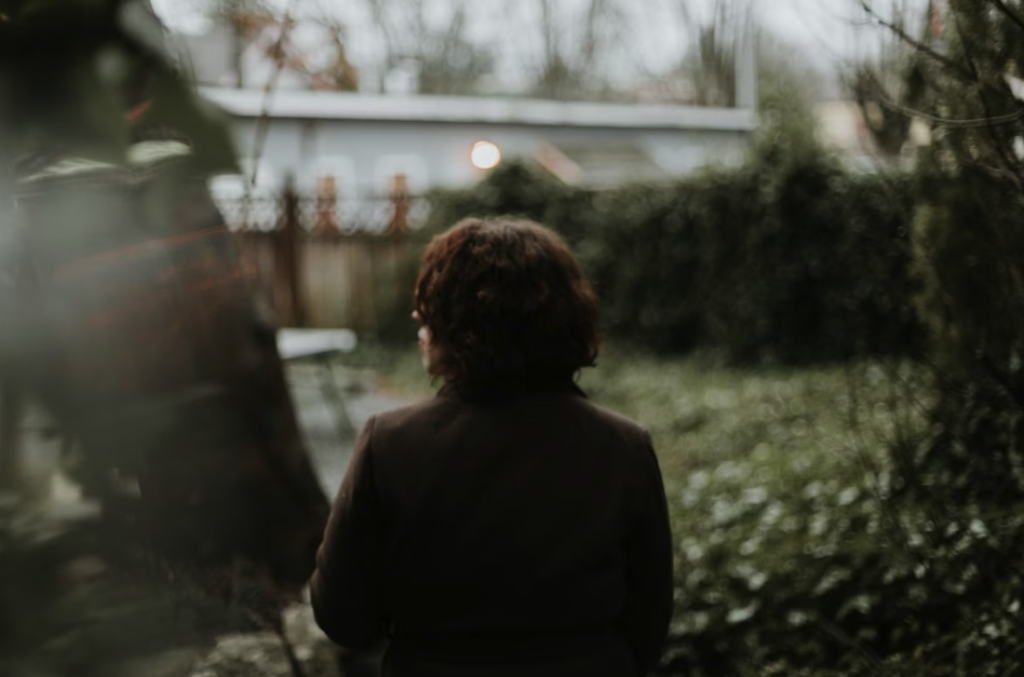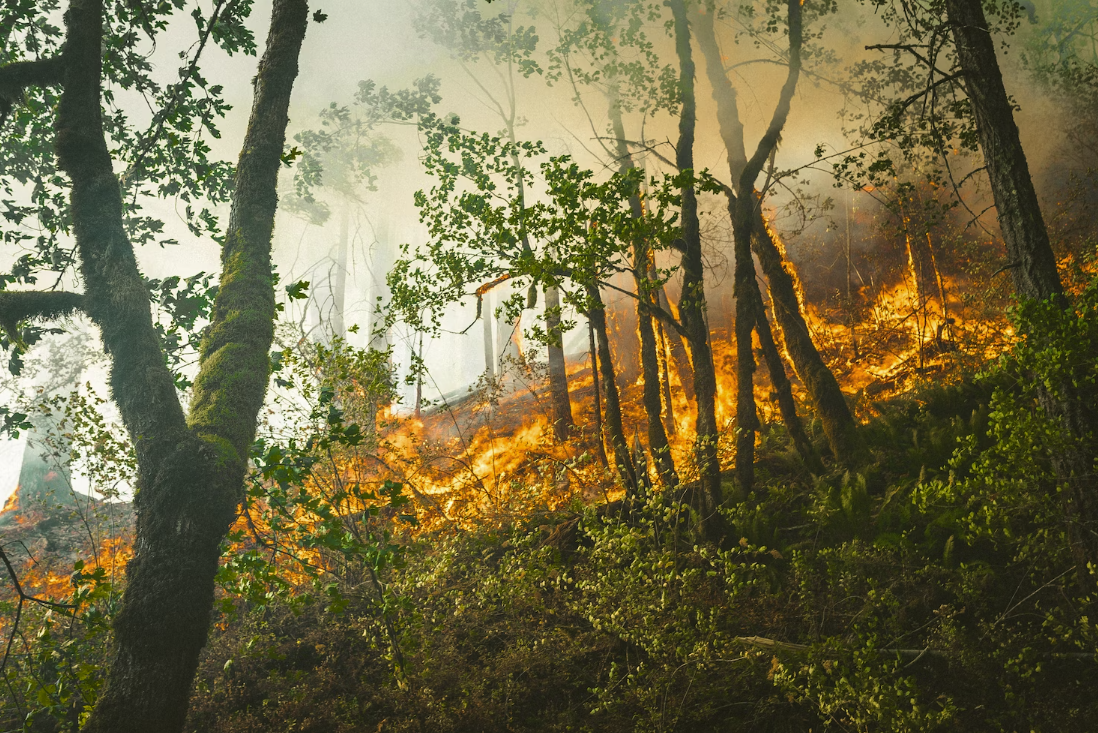It seems to be that time of year again when the news headlines are dominated by mentions of climate change and wildfires in British Columbia (BC). With the BC Wildfire Service having already spent $105.3 million fighting fires in the province this year – well before peak fire season [1] – the question of the human cost of these fires becomes increasingly pressing. In this blog post, we will briefly explore wildfires in British Columbia and the impact they have on individual and community mental health, whilst stressing the importance of collective action to address the growing eco-anxiety crisis.
The Wildfire Crisis in British Columbia
British Columbia has long been known for its stunning natural beauty, characterized by vast forests, majestic mountains, and diverse ecosystems. However, the province is now experiencing an increasing number of wildfires that have been growing in severity and scale in recent years. The 2021 wildfire season was one of the most destructive on record, with the combination of reduced rainfall and a historic heat wave raising the fire danger to extreme levels. Approximately 870,000 hectares of land were consumed by the flames between April 1, 2021 and March 28, 2022, with the total cost of wildfire suppression estimated to be nearly $719 million [2]. During the 56-day provincial state of emergency beginning on July 21, 2021 [2] (and beyond), entire communities were evacuated, and the air quality in major cities was severely compromised. The wildfires have not only led to significant economic loss, but have also caused immeasurable ecological damage, threatening wildlife habitats and further exacerbating the climate crisis.
The Rise of Eco-Anxiety
The prevalence of eco-anxiety is dramatically increasing in association with the wave of climate crises: the heat, the fires, the floods, and the fear. The American Psychological Association (APA) describes the following potential impacts of eco-anxiety on individuals:
- Feelings of helplessness, fear, fatalism, solastalgia (the feeling of losing a place that is important to one despite not having left it)
- Loss of personal and occupational identity
- Loss of autonomy and control
- Aggression and violence
- Substance abuse
- Depression
- Strains on social relationships
- Compounded stress
- Trauma and shock [3]
The APA also identifies the following potential impacts of eco-anxiety on communities and societies:
- Decreased sense of cohesion
- Disrupted sense of continuity and belonging
- Increased interpersonal aggression (e.g., domestic abuse and crime)
- Increased intergroup aggression (e.g., political conflict and war) [3]

Addressing Eco-Anxiety
While eco-anxiety is a genuine and understandable response to the climate crisis, it is crucial to channel these emotions into positive action. Here are some steps you can take to cope with eco-anxiety and contribute to mitigating the wildfire crisis:
- Educate yourself: Enhance your understanding of climate change and wildfires by staying informed through reputable sources. Acquiring knowledge about the issue can empower you to make informed decisions and engage in productive conversations with others.
- Adopt sustainable practices: Make conscious choices in your daily life to reduce your ecological footprint. This can include conserving energy, practicing responsible waste management, supporting local and sustainable businesses, and adopting more environmentally friendly transportation options.
- Connect with nature: Spend time in nature, whether it be hiking, gardening, or simply taking a walk in a park. Connecting with the natural world can help alleviate anxiety and foster a deeper appreciation for the environment.
- Advocate for change: Engage in activism and advocacy efforts to push for stronger environmental policies and regulations. Participate in local initiatives, attend community meetings, and write to your elected representatives to express your concerns and demand action.
In response to the impacts of climate change and ecosystem disruption on healthcare provision in rural BC, The Rural Health Services Research Network of BC (RHSRNbc) created an online learning hub titled “Building Resilient Rural Communities: Responding to Climate Change and Ecosystem Disruption”. The learning hub highlights the importance of youth engagement, self-education, and interdisciplinary action in the face of climate change and is unique in its appeal to various audiences through different media (e.g., video, infographics, text). This initiative calls for co-creativity and collaboration and the hope is that it inspires critical thought, dialogue, and subsequent action in those who engage with it.
Despite the wildfires’ destruction of British Columbia’s landscapes and the ignition of eco-anxiety among its residents, it is important to remember that while individual actions are valuable, addressing the wildfire crisis and eco-anxiety requires collective effort.
By coming together as a community, advocating for policy changes, and embracing sustainable practices, we can strive toward a more resilient future.
Reference List
1. Popyk T. B.C. is burning through its wildfire budget well before the season even peaks. Canadian Broadcasting Corporation [Internet]. 2023 Jun 14; Available from: https://www.cbc.ca/news/canada/british-columbia/bc-wildfire-costs-2023-1.6875171
2. Wildfire Season Summary – Province of British Columbia [Internet]. Government of British Columbia. Available from: https://www2.gov.bc.ca/gov/content/safety/wildfire-status/about-bcws/wildfire-history/wildfire-season-summary
3. Clayton S, Manning C, Krygsman K, Speiser M. Mental Health and Our Changing Climate: Impacts, Implications, and Guidance [Internet]. American Psychological Association; 2017 Mar. Available from: https://www.apa.org/news/press/releases/2017/03/mental-health-climate.pdf

Leave a Reply